
Crepes are one of the foods that people associate with France. In this article, we sum up all the information you need to know about Crêpe and Galette!
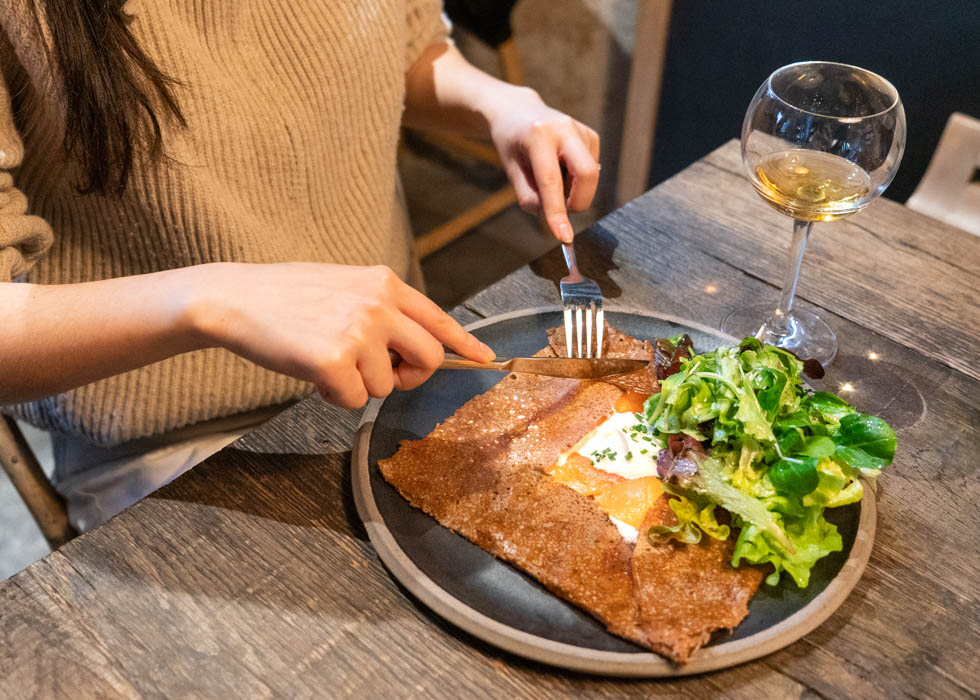
French people themselves commonly use the word “crêpe” for both Crêpes de Froment (wheat flour pancakes) and Galettes de Sarrasin (buckwheat pancakes), so it’s sometimes quite complicated for foreigners to make the difference! But the wheat flour crêpes are usually sweet ones, thin, moist, with a golden-brown color. They are usually eaten as a treat or for dessert, and people usually make them at home (with eggs, flour, milk, sugar, butter, a stove, and a frying pan). The buckwheat pancakes are thicker, sometimes crispy, dark-colored and most of the time salty. French people usually eat them in restaurants, for lunch or dinner.

Crêpes are a traditional dish for most of the French regions, whereas Galettes are specifically from Bretagne (Brittany) and are often referred to as galettes bretonnes.
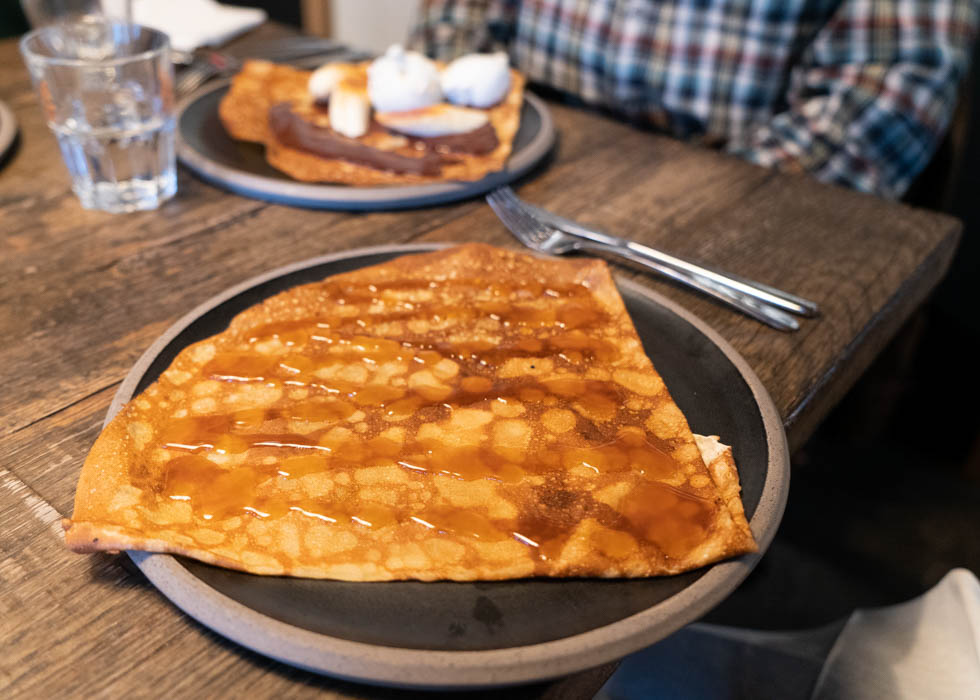
French people don’t eat crepes or galettes plain. Instead, they fill or top them with just about anything you can imagine. If you visit a creperie (crêpe restaurant) you will have to choose between many different crêpes, some of them could even be unique ones only make in one restaurant. There are however some “traditional” crêpes and galettes that you can find almost everywhere.
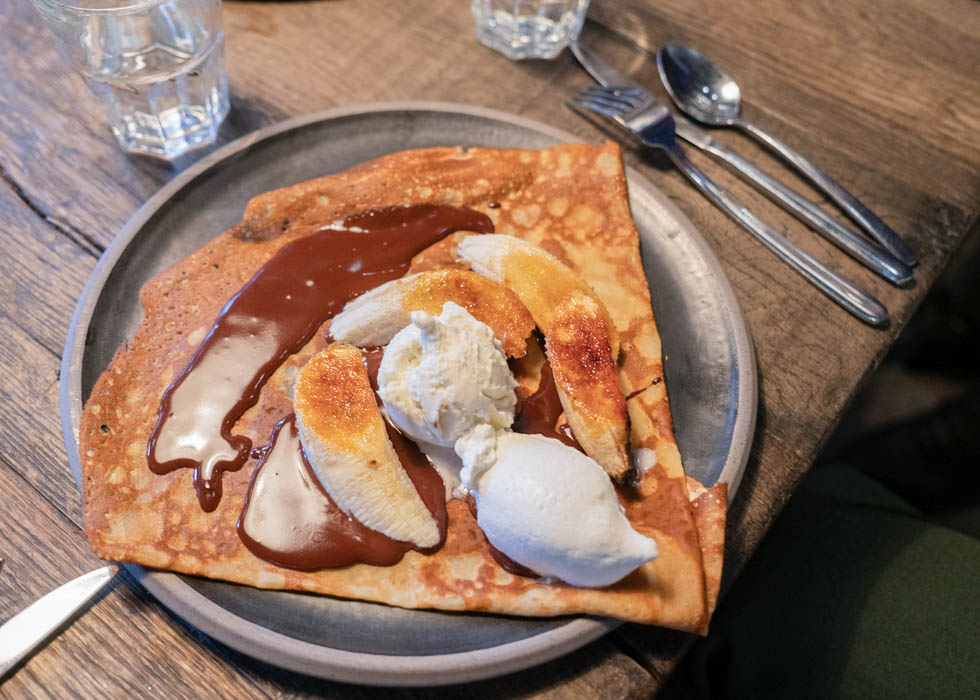
Among the most popular wheat flour crêpes, you can find: crêpes au sucre (just sugar on it), crêpes caramel au beurre salé (traditional Salted Butter Caramel from Brittany), chocolate (or Nutella) and banana... and on most of them Crème Chantilly (sweetened whipped cream) can be added. Wheat flour Crêpes can also be Suzette (a 19th-century recipe with caramelized sugar, liqueur, and lemon and orange zests) or "flambeed".
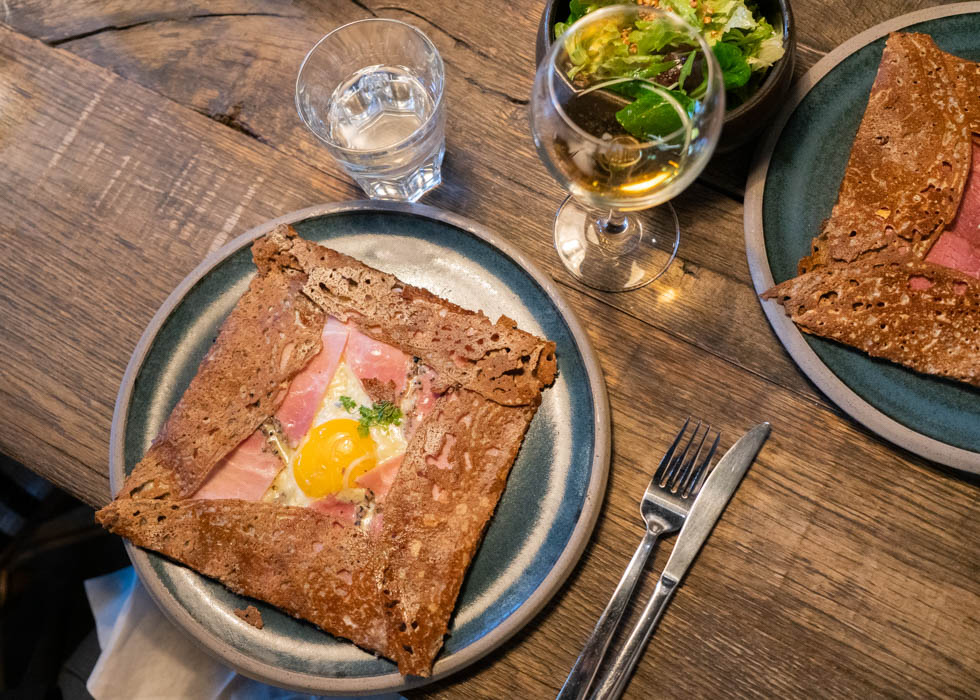
For the buckwheat pancakes, the most common ones are the "complete" (ham, egg and cheese), salmon, chorizo, andouille de Guéméné (a pork sausage made from pigs' intestines and stomachs)...
Apart from the "traditional" types of crêpes, any Chef can put just about anything into a galette: so nowadays you can find Vegan crepes, Foie Gras crêpes, lobster crepes... Normal wheat flour crêpe price range from 3€ to 6€, and 8€ to 15€ for buckwheat pancakes. For gourmet ones with high-quality ingredients, the price can be much higher, for both wheat flour and buckwheat crêpes.
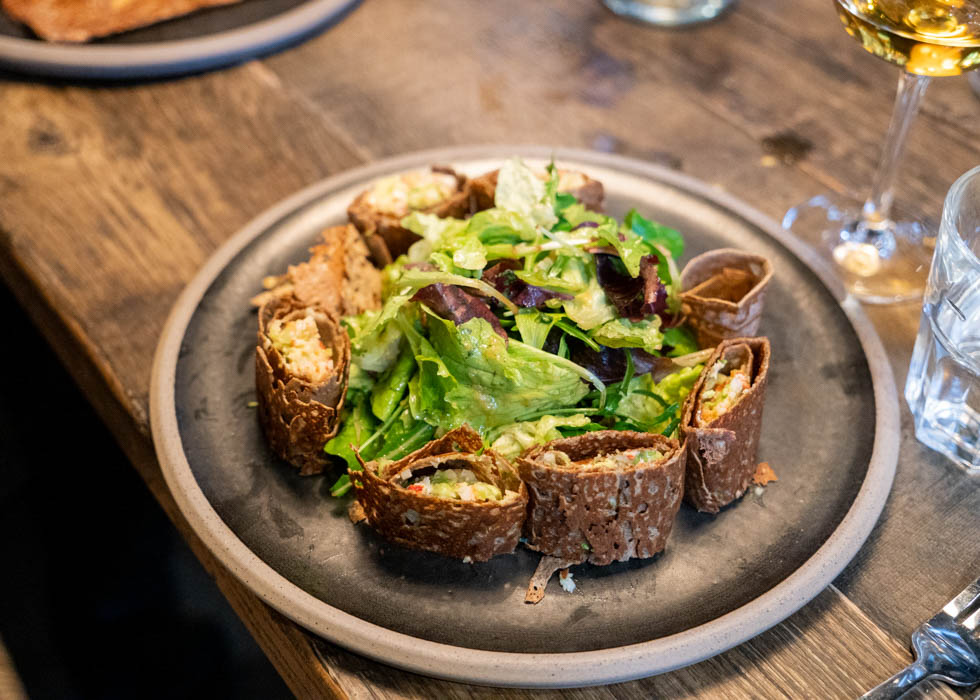
In terms of shape, you can find now many different kinds, like triangle ones, our even “crêpes rolls” like on the photo above (recipe from Breizh Café).
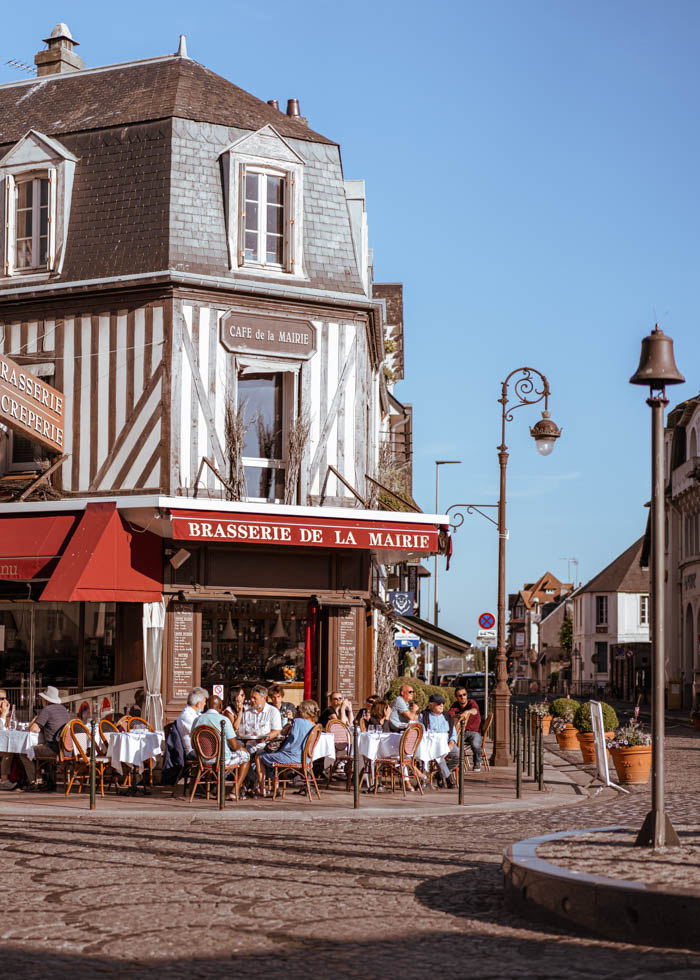
There are plenty of crêpes fast-food stands near tourist Areas, where you can usually take away a crepe for around 5€ (the crepe is usually folded up into a cone-like shape, with the ingredients inside). These crepes are usually filled with cheap cheese, so it is not a great culinary experience, but a good way to eat cheap/fast food other than sandwiches or hamburgers. But If you want to have a better experience, you must try crepes from a Creperie.
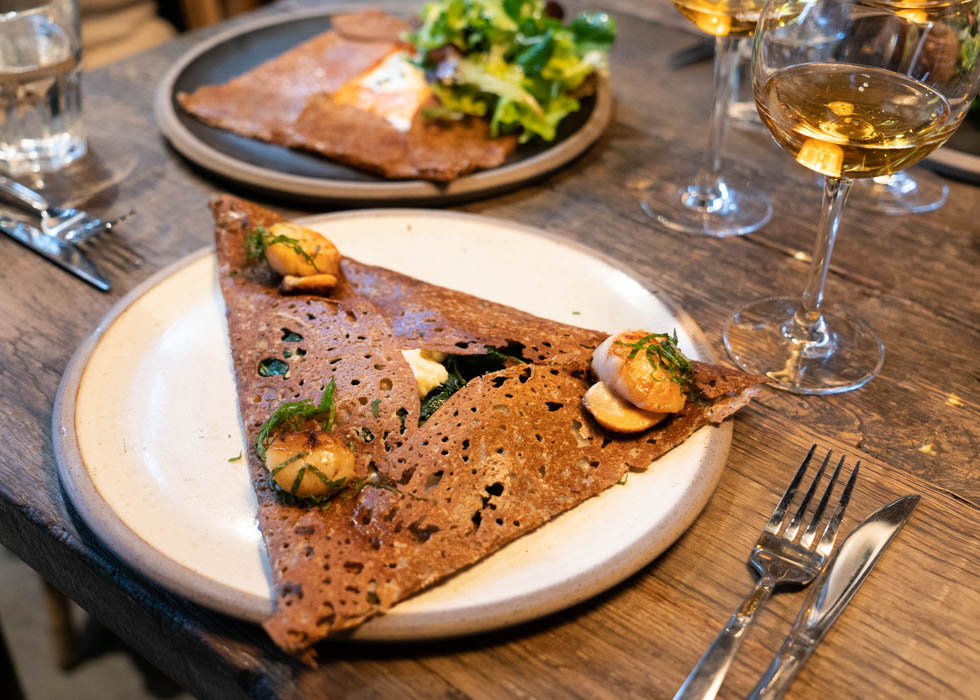
Traditionally, the Breton district is around Gare Montparnasse: in the early 20th century, migrants from the Bretagne region (Brittany) were arriving by train at the railway station and settling nearby. That is why you can still find many great Brittany restaurants in that area. But nowadays you can find crêperies everywhere in Paris. One of the most trendy and premium ones Is the chain “Breizh Café” (Breizh means Brittany in the Brittany language). The prices are slightly higher than in other creperies, because they use mostly fresh and locally sourced ingredients, with unique recipes.
The best-known drink to complement the French crêpes is the cider, sweet sparkling wine made of apple juice. Most of the ciders are produced in either Britanny or Normandy Region. Ciders are traditionally served in an earthenware bowl, called bolée.
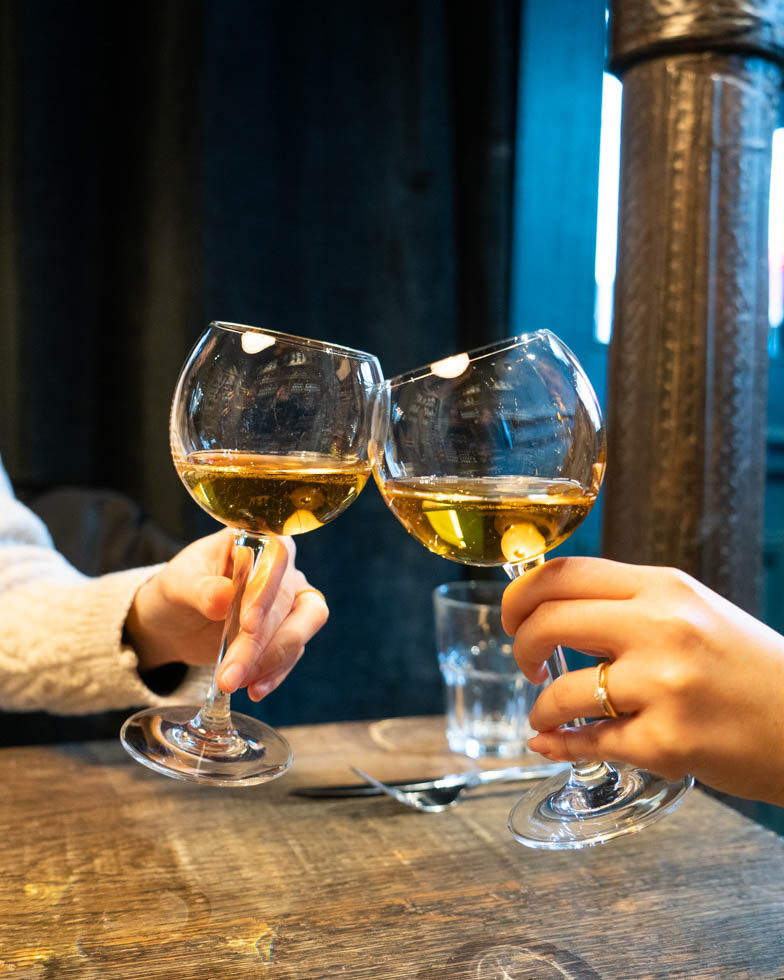
Cider can take on several colors from light yellow to amber, with an alcohol content of between two and six percent, depending on its fermentation. There are two main categories of cider: “Doux” (Sweet), lighter, and “Brut” which is drier and stronger on the palate. Some are called “Cidre fermiers”, which are made directly in the farm that produces the apple (and not in factories).
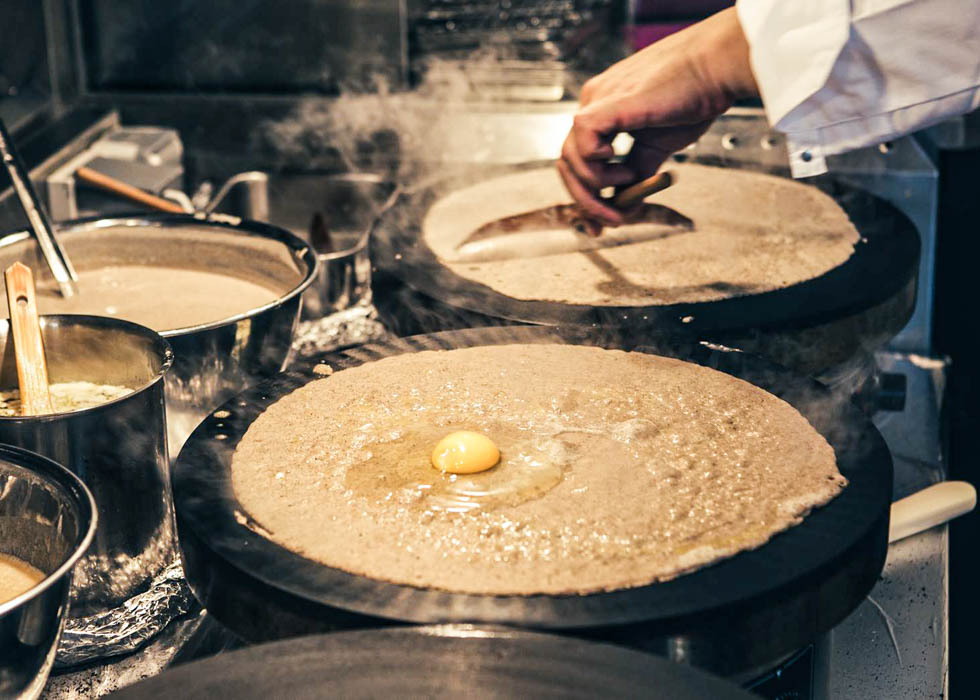
Finally, we could not talk about crêpe without mentioning Chandeleur (Candlemas, February 2, a Christian holiday commemorating the presentation of Jesus at the Temple). It is also called Le Jour des Crêpes (Crepe Day) because French people usually make wheat flour crepe at home on that day, and all family members participate. On this day, it’s said that if you hold a coin in one hand while using the other to successfully flip a crepe in a frying pan, you’ll have a prosperous year The trick to success is to make sure that the crepe won’t stick to the pan, by lightly covering the pan with butter or vegetable oil before.
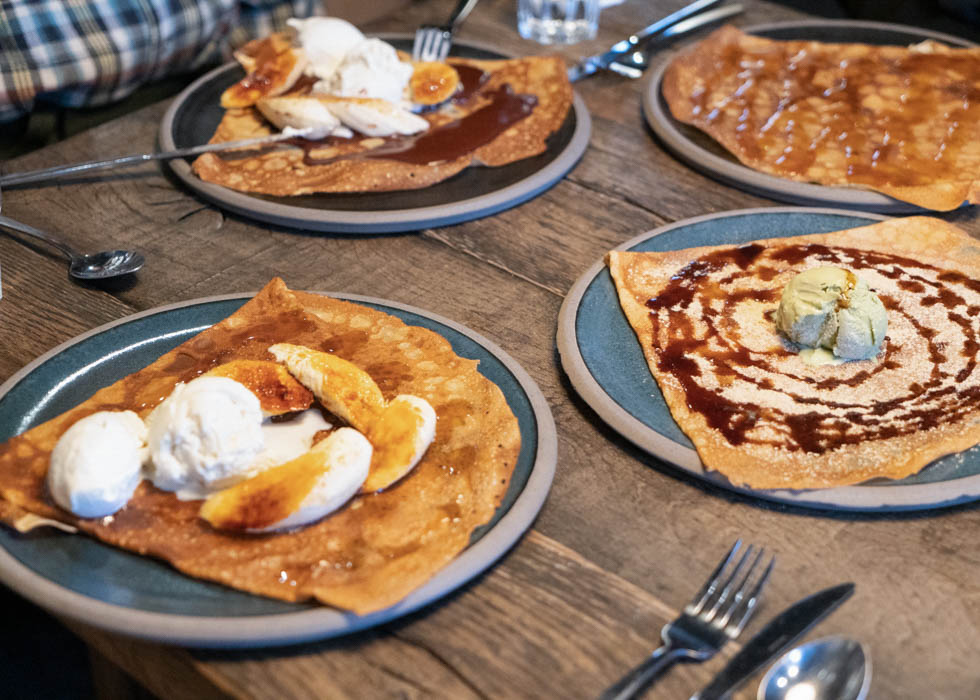
We hope that this article was mouth-watering and that you will have the chance to enjoy crepes very soon! Bon appétit!
Text and photos: O'bon Paris Team